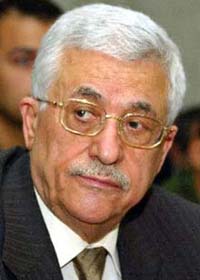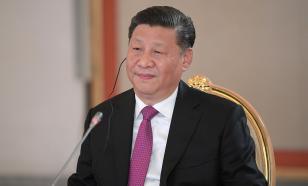International mediators invite Olmert, Abbas to Cairo after summit meeting canceled
International mediators invited Palestinian President Mahmoud Abbas and Israeli Prime Minister Ehud Olmert for talks in Cairo this month, stepping into the vacuum created by the Palestinians' last-minute cancellation of a meeting Thursday between the two men.

The diplomatic maneuvering took place at a time when a brittle truce between rival Palestinian gunmen began to unravel. One gunman from Abbas' Fatah faction was killed before daybreak Thursday in a shootout with fighters from the rival Hamas faction in the southern Gaza Strip - the first fatality in Palestinian infighting since the truce took hold in mid-May.
More than 50 Palestinians died in two weeks of internal strife that eased after Hamas stepped up its rocket attacks on Israel, drawing dozens of Israeli airstrikes and unifying the Palestinian groups against their common enemy.
The bombardments on both sides, which shattered a five-month-old truce between Israel and Gaza militants, have eased dramatically in recent days. But with the situation so volatile, the latest round of Palestinian-Israeli violence - which killed more than 60 Palestinians, most of them militants, and two Israeli civilians - was to have dominated the Olmert-Abbas meeting Thursday in the West Bank town of Jericho.
The Palestinians called it off, however, accusing Israel of rejecting all their proposals in preparatory talks.
In lieu of that meeting, the so-called Quartet of Mideast mediators - the U.S., EU, Russia and the U.N. - invited the two leaders for talks in Egypt on June 25, Palestinian Foreign Minister Ziad Abu Amr announced.
Representatives of the 22-member Arab League, which is pushing a sweeping peace plan, will also attend, Abu Amr said.
U.S. and Egyptian officials confirmed the planned gathering in Cairo. Olmert's office said it has not received a formal invitation.
The Olmert-Abbas meeting was supposed to be one of a series of get-togethers meant to bring Israelis and Palestinians closer to talks on a final peace deal. But Palestinian officials faulted Israel for rejecting an Abbas proposal to reinstate the Gaza cease-fire in Gaza and then expand it a month later to the West Bank, where Israeli troops pursue wanted militants in frequent and sometimes deadly raids. Israel sees the proposal as a ruse that would allow militants to regroup and intensify attacks.
Another key sticking point was Israel's refusal to release hundreds of millions of dollars in tax money it collects for the Palestinians. Israel froze the payments last year after Hamas was elected to power, demanding the militant group accept international calls to renounce violence and recognize the Jewish state.
The cutoff in payments, along with international sanctions against the Palestinian government meant to pressure Hamas to change its stripes, have deepened the crushing poverty in Gaza and the West Bank. Hamas brought the more moderate Fatah into its government in March, but the sanctions have remained intact for the most part because Hamas hasn't modified its anti-Israel ideology.
Subscribe to Pravda.Ru Telegram channel, Facebook, RSS!


